|
By Lori Lines
Relationships are complex interplays of emotions, experiences, and connections. Within this web, a common yet often overlooked factor is the role of trauma bonding. Many relationships, whether romantic, platonic, or familial, find their origins in shared hardships, creating a unique connection between souls. While these shared experiences can initially foster a sense of unity and understanding, they may also pave the way for toxic patterns that, over time, can strain, hinder or dismantle the relationship. Understanding Trauma Bonding: Trauma bonding refers to the emotional connection that forms between those of us who have experienced significant adversity together. Shared trauma can create a unique bond, as we find solace and support in one another during difficult times. This shared experience often creates a sense of unity and understanding that can be the catalyst for the initiation of a relationship. The Beginning of Relationships: Many relationships, especially romantic ones, may start with a sense of mutual understanding born out of hardships. Individuals who have faced adversity similar to another, may feel a deep connection, as the shared experience creates a foundation of empathy and support. It's important to note that trauma bonding is not inherently negative; it can be a powerful force that brings people together and fosters growth and strength and self-awareness. The Evolution of Trauma Bonds: However, the challenge arises when the relationship continues to be defined by the initial trauma. As we grow and evolve, our needs, perspectives, and coping mechanisms may change, changing how we relate to one another. If the relationship remains tethered to the past trauma, it can become a breeding ground for toxicity and limitations. Toxic Patterns and the Impact on Relationships: Trauma bonding can sometimes lead to unhealthy dynamics within relationships. Patterns of codependency, where we rely excessively on each other for emotional support, may emerge. Unresolved issues from the past may resurface, creating a cycle of negativity that hinders the growth of both parties. Moreover, people may change over time, healing from their past traumas and developing new perspectives. In such cases, if the relationship is solely built on the shared trauma, the bond may weaken or even break as the common ground that initially brought them together fades away. Examples of Trauma Bonding: Surviving a Natural Disaster Together Imagine two individuals who find themselves amid a natural disaster, such as a hurricane or earthquake. The shared experience of facing a life-threatening situation can create a deep emotional bond. The fear, adrenaline, and the collective effort to survive can lead to a strong connection between these souls. While this trauma bonding might initially provide comfort and support, it could become problematic if the relationship continues to revolve solely around the shared disaster, hindering the growth of those involved. Coping with Loss Consider two people who have experienced a significant loss, such as the death of a loved one. The grieving process can bring individuals together as they navigate the emotional challenges associated with loss. The shared pain and understanding can create a strong bond, forming the basis of their relationship. However, if the relationship remains solely centered on the grief, it may become stagnant. As individuals heal and move forward, the bond may struggle to adapt, potentially leading to strain or detachment. Navigating Divorce Together Imagine two people who, at different points in their lives, experienced the challenging process of divorce. The emotional turmoil, legal complexities, and the restructuring of their lives create a unique bond between them. The shared understanding of the pain, loss, and uncertainty that divorce brings can lead to a deep connection. They might find solace in each other's company, providing mutual support during a difficult time. However, if the relationship is primarily based on the shared experience of divorce, it may encounter challenges as they both move forward in their lives. As they heal and embark on new beginnings, the common ground that initially brought them together may diminish. If the relationship fails to evolve beyond the shared trauma of divorce, it could become a hindrance to their individual growth. This situation highlights the importance of adapting to change, cultivating open communication, and building a relationship that goes beyond the initial bond formed through hardship. These examples illustrate how trauma bonding can originate from shared difficult experiences, bringing individuals closer together. While such bonds can be powerful and supportive, they also run the risk of becoming the sole foundation of a relationship, potentially evolving into patterns that hinder personal growth and the overall health of the connection. My Personal Experiences with Trauma Bonding, Before, During and After Awakening: In my years of self-discovery, which never ends by the way, I found myself standing at the crossroads of realization, peering into the depths of my closest relationships. As the layers of my awakening unfurled, I began to understand why some of the connections that once anchored me were now adrift, lost in the currents of change. It was a profound recognition, a poignant revelation that echoed through the hallways of my consciousness. These relationships, forged in the crucible of shared experiences of abandonment and the haunting specter of fear, were vital lifelines during the tumultuous journey of my youth. We clung to each other, navigating the world with the weight of similar scars etched into our souls. Our kinship, a sanctuary built upon the shared language of pain and the resilient spirit that arose from it, became a comforting cocoon in which we cocreated our own reality. Yet, as I delved deeper into the recesses of self-awareness, peeling away the layers of conditioned responses and inherited fears, I realized the deep transformation that had occurred within me. The once-familiar grounds of victimization, woven into the fabric of my identity through childhood and young adulthood, were fading away. I was evolving, transcending the limitations of my past, and stepping into the light of my true self, in that now moment. This metamorphosis, however liberating, came at a cost. The relationships that had weathered storms alongside me for years struggled to keep pace with the winds of my internal change. The common ground that once bound us began to crumble beneath the weight of divergent paths. As I shed the cocoon of victimhood, embracing the wings of self-empowerment, I found myself soaring to new heights, leaving behind the confines of old narratives. It was a bittersweet realization – the acknowledgment that growth can be a lonely endeavor. The once-shared language of sameness and pain had become obsolete, replaced by the resonance of self-love and authenticity. The connections that once defined me were now relics of a bygone era, incapable of mirroring the person I had become. In this transformation, there was no blame, no resentment. Instead, there was gratitude and deep love for the individuals and for the role these relationships played in my evolution. They were the stepping stones that carried me through the turbulent waters of self-discovery to a new foundation of peace through self-realization. Yet, as I stood on the shore of my newfound identity, I understood the necessity of releasing the anchors of the past. In embracing my authentic self, I discovered a deep sense of fulfillment that transcended the limitations of shared wounds. The echoes of my awakening reverberated through the void left by fading connections, paving the way for new relationships that aligned with the person I had become. As I navigated the uncharted waters of my transformed reality, I did so with a heart full of love and gratitude for the past, the individuals in it, and a spirit open to the endless possibilities of the future. The Importance of Growth and Communication: For a relationship to thrive, we need to grow both independently and together, learning to cast off the shackles of codependency. Healthy communication plays a pivotal role in navigating the complexities of trauma bonding. Open and honest conversations about our growth, changing needs, and evolving perspectives can help partners or individuals in any type of relationship to adapt and find new, healthier ways to connect. Final Thoughts... Understanding the dynamics of trauma bonding in relationships is crucial for healthy connections to stay healthy. While shared hardships can be the genesis of deep connections, we need to grow beyond the trauma and evolve together. Recognizing the potential for toxicity and actively working toward open communication and growth can transform a relationship from one based on shared trauma to one built on tenacious understanding, and mutual support. In Love and Truth, Lori Lines
0 Comments
By Lori Lines
In a world often marred by stress, conflict, and negativity, the concept of unconditional love stands out as a beacon of hope and transformation. Beyond its traditional association with personal relationships, unconditional love has the profound ability to permeate and elevate not only individuals but also the collective consciousness. By embodying and projecting unconditional love to others, a fascinating phenomenon unfolds—the increase of vibrational frequency. So, how can love create positive change? Understanding Vibrational Frequency At its core, the idea of vibrational frequency refers to the energy emitted by everything in the universe, including our thoughts, emotions, and actions. Science has shown that these frequencies are not static; they can be influenced and altered by external factors. This is where the concept of unconditional love comes into play. When we emit and express love without conditions or expectations, we transfer a powerful and positive vibrational frequency that has the potential to impact those around us. The Ripple Effect of Unconditional Love Imagine a serene pond, its surface undisturbed. Now, drop a single pebble into the water. As the ripples expand outward, they reach every corner of the pond, transforming its stillness into a succession of interconnected waves. Similarly, when we embody and project unconditional love, we become the pebble that sets off transformative ripples in the energy field around us. Let's consider an example to illustrate this concept Meet Sarah, a dedicated teacher working in a bustling city. Sarah approaches her students with unwavering love, accepting each child for who they are and encouraging their unique qualities. This isn't just about classroom management; it's about creating an environment where unconditional love is the foundation of learning. As Sarah consistently embodies and projects this love, something remarkable happens. The students in Sarah's class begin to respond positively. They feel safe, supported, and valued. As a result, their own vibrational frequencies start to shift. They become more open-minded, compassionate, and cooperative. This change is not confined to the classroom; it extends to their interactions with family, friends, and the broader community. The Greater the Love, the Greater the Change Now, let's return to the initial premise: the more unconditional love, the greater the change. In Sarah's case, her commitment to unconditional love creates a domino effect. The positive vibrational frequency spreads beyond the confines of her classroom, influencing the school environment, the families connected to her students, and eventually, the community at large. Final Thoughts... Unconditional love isn't just a lofty ideal; it's a catalyst for positive change with far-reaching effects. By understanding and harnessing the transformative power of unconditional love, we can contribute to a collective shift in vibrational frequency. Like the ripples in a pond, our actions and intentions can create a harmonious dance of positivity, touching the lives of those around us and ultimately cultivating a compassionate and connected world. So, let's strive to be the pebble that makes a positive impact, one ripple of unconditional love at a time. In love and truth, Lori Lines By Lori Lines
In human emotions, it is not uncommon for us to confuse the emotional rush of infatuation with the profound, life-supporting energy of true love. The distinction between these two states of being is vital to healthier relationships, personal growth, and a more harmonious life. Infatuation, often marked by intense attraction, is alluring yet destructive. It tends to be fueled by fleeting desires, superficial connections, and a sense of possession or ownership. This form of energy is transient, akin to a flickering flame that may burn passionately but lacks the enduring warmth that defines genuine love. Infatuation can serve as a spiritual lesson by highlighting the impermanent nature of desires and emotions. It often prompts us to explore deeper aspects of ourselves, cultivating self-awareness and growth. For instance, someone infatuated may realize the importance of fostering inner contentment rather than relying on external sources for happiness, leading to deeper spiritual insight and well-being. On the contrary, love energy is a powerful force that extends far beyond mere emotions or fleeting thoughts. It is characterized by heartfelt generosity, nurturing tendencies, affection, steadfastness, and forgiveness. Love acts as a protective shield, encouraging collaboration, uplifting spirits, and embracing a holistic relationship approach. The pathway to love involves surrendering the barriers that impede its flow. It is a conscious choice to be of help, to provide comfort, and to extend support in times of need. True love seeks to understand, console, and uplift others, embodying warmth, gratitude, appreciation, humility, and a sense of completion. In the domain of love, actions speak louder than words. It goes beyond declarations of affection to manifest in tangible ways: lending a helping hand, offering financial support, aiding in job searches, or providing solace during grief, to name a few. Love, in its purest form, is a beacon that lights up the world through acts of kindness and genuine concern for others. As we navigate the complexities of human connections, we must recognize the stark contrast between infatuation and love. While infatuation may be alluring in its intensity, it often leaves a trail of chaos and pain in its wake. On the other hand, as a way of being, love contributes to the well-being of ourselves, others, and the collective, sustaining a positive, life-supporting energy that resonates far beyond the confines of personal relationships. Understanding and embodying the qualities of authentic love energy is essential for cultivating meaningful connections and contributing to a more compassionate and harmonious world. By being open to acts of kindness, support, and genuine concern, we can truly light up our surroundings with the transcendent power of love. In love and truth, Lori Lines By Lori Lines
Seeking positivity has become a famous mantra in a world that often seems fraught with challenges and adversities. Positivity, in itself, is not harmful. In fact, fostering a positive outlook can enhance mental well-being and strengthen our aura. However, there exists a dangerous extreme: toxic positivity. This term refers to the excessive and enforced positivity that dismisses any form of negative emotion or struggle, denying the complexity of human emotions. In spirituality, this phenomenon takes on a specific form known as spiritual bypassing. So, let's delve into the dark side of positivity, exploring the concepts of toxic positivity and spiritual bypassing and the detrimental impact they can have on mental and spiritual health. Understanding Toxic Positivity Toxic positivity is the tendency to overemphasize positive emotions and dismiss or invalidate any form of negativity. While the intention behind encouraging positivity might be good, toxic positivity often suppresses genuine emotions, leading many to feel guilt or shame for experiencing natural human feelings such as sadness, anger, or grief. This unrealistic expectation to always be positive can create a facade of happiness, masking the real issues that need attention and resolution. Spiritual Bypassing: A Deceptive Escape Spiritual bypassing is a term coined by psychologist John Welwood to describe the tendency to use spiritual beliefs and practices to avoid dealing with painful feelings, unresolved wounds, and developmental needs. It's a way of sidestepping the necessary emotional work by clinging to a superficial sense of spirituality. For instance, someone might believe that their faith should shield them from all negative emotions, leading them to suppress feelings of pain or anger rather than confronting and processing them. The Dangers of Suppressed Emotions Suppressing emotions, whether through toxic positivity or spiritual bypassing, can have severe consequences on mental and emotional well-being. Unresolved emotions tend to resurface in unexpected ways, potentially causing anxiety, depression, or even physical health issues. Moreover, the denial of negative emotions prevents genuine self-reflection and personal growth, hindering our ability to develop resilience and emotional intelligence. Examples of Toxic Positivity: Experiencing guilt for being sad or angry Reciting positive quotes for hard situations without going deeper Dismissing others' difficult feelings Hiding painful emotions Ignoring your problems Embracing Emotional Authenticity A healthy approach involves acknowledging the full spectrum of human emotions. It's important to understand that feeling sadness, anger, or frustration doesn't diminish spiritual beliefs or personal strength. In fact, embracing these emotions with compassion and understanding can deepen spiritual practices and foster genuine personal growth. Breaking the Cycle Breaking free from the cycle of toxic positivity and spiritual bypassing requires self-awareness and self-compassion. It involves recognizing and accepting all emotions without judgment. Spiritual practices can be powerful tools for self-discovery and healing, but they should not serve as a means to escape from reality. Instead, they should provide a foundation for understanding oneself more deeply and facing life's challenges with resilience and authenticity. Final Thoughts... Positivity, in its genuine form, can be a beacon of hope and resilience in challenging times. However, when positivity transforms into toxic positivity and spiritual bypassing, it becomes a deceptive mask that hinders genuine emotional expression and personal growth. Embracing the complexity of human emotions, and acknowledging both the positive and negative aspects of life, is the path to true spiritual and emotional well-being. Let us strive for authenticity, compassion, and self-awareness, creating a space where all emotions are valid and where personal growth can flourish organically. In love and truth, Lori Lines By Lori Lines
In a world inundated with news of wars, setbacks, and an endless stream of doom and gloom, it's easy to become entrapped in a cycle of negativity that permeates our thoughts and emotions. However, the age-old adage, "What we think, believe, and emote creates our reality," invites us to question whether the external chaos truly defines our personal experience of reality. So, I wanted to talk about the concept that our perceptions shape the world we live in and how a conscious shift in mindset can transform how we live our lives. Beyond the Illusion: The bombardment of information from mainstream and alternate news sources often paints a picture of a world steeped in duality — a constant struggle between good and evil, positive and negative. While acknowledging the existence of hardships and challenges faced by others globally, the question arises: does this constitute your immediate reality? The answer may lie in recognizing that our perception of reality is a subjective construct, influenced by our thoughts and beliefs. The Pollyanna Paradox: Some may dismiss the idea of consciously shaping one's reality as mere Pollyanna optimism, a refusal to acknowledge the harsh truths that surround us. However, the essence of this perspective lies in understanding the power of our vibrations — the energetic frequencies emitted by our thoughts and emotions. By choosing to focus on positivity and gratitude in our immediate surroundings, we may elevate our vibrations above the discordant frequencies of negativity, creating a different, more harmonious reality. The Duality Trap: Continuous immersion in news cycles, filled with tales of strife and discord, can contribute to the manifestation of a reality characterized by duality. The constant influx of information can shape our beliefs and emotions, leading to a state of perpetual tension and anxiety. It becomes imperative to question whether such a reality is a result of external circumstances or a product of our own mental and emotional engagement with the world. Loosening our grip on the duality trap may be just what we need to do. Rising Above: To manifest at warp speed, as some believe, requires a deliberate shift in focus. Turning off the news and stepping away from the doom and gloom narratives might seem like a radical step, but it's a crucial one in reclaiming the power to shape our own reality. By disengaging from the fear-inducing information, we create space for a more positive, fulfilling existence as we focus on the present moment in our lives. Life as a Continuous Transformation: The assertion that "we do not die, we only transform into another reality" invites contemplation on the nature of life and death. Fear of death, it seems, is the only catalyst for the experience of it. Embracing the idea that life is a continuous cycle of transformation encourages us to live in the present, unburdened by the anxieties of an uncertain future. Looking Beyond the Illusion While Serving Others Amidst Duality While the concept of shaping our own reality emphasizes personal empowerment, it's crucial to acknowledge the interconnected nature of our existence. As we rise above the illusion of duality, a natural inclination arises to be of service to those still mired in the throes of hardship and negativity. Here are some ways in which we can extend a helping hand to those experiencing the challenges of a dualistic reality if they will allow: Empathy and Compassion: Cultivating empathy and compassion is the first step to being of service. By understanding the struggles of others without judgment, we create a space for genuine connection. This emotional resonance lays the foundation for meaningful support. Active Listening: Often, those trapped in the cycle of duality may yearn for someone to hear their story. Being an active listener, without interjecting judgments or solutions, provides a valuable opportunity for them to express themselves and feel acknowledged. Offering Perspective: While encouraging a shift in perspective, it's essential to do so with sensitivity and respect. Share personal experiences or stories of hope and resilience that may inspire by providing a different outlook on challenging situations. Practical Assistance: Acts of kindness and practical assistance can go a long way in alleviating the burdens of those facing hardships. Whether it's offering a helping hand with daily tasks, providing resources, or volunteering time, these actions contribute to creating a more supportive and compassionate community. Encouraging Mindfulness Practices: Introducing mindfulness practices to individuals entrenched in duality can be transformative. Techniques such as meditation and mindfulness help cultivate inner peace and mental spaciousness, enabling them to navigate challenges with a clearer mindset. Educating on Empowerment: Empowering others with knowledge about the power of thoughts and emotions can be a powerful tool for personal transformation. Share insights on how one's mindset can shape their reality and provide resources for self-improvement and personal development. Creating Support Networks: Establishing or contributing to support networks within communities can foster a sense of belonging and shared responsibility. Collective efforts can amplify the impact of individual acts of service, creating a more robust foundation for positive change. Promoting Acts of Kindness: Encourage a ripple effect of kindness by fostering a culture of giving. Simple acts of kindness, whether big or small, can create a positive momentum that extends far beyond individual interactions, contributing to a more harmonious collective experience. By combining personal empowerment with a commitment to serving others, we create a synergistic approach to navigating the complexities of a dualistic reality. As we lift ourselves above the illusion while creating our own reality, extending a helping hand to those in need becomes not only an act of service but also a testament to the transformative power of collective compassion and interconnectedness. Final thoughts... In a world inundated with information, the power to shape our reality lies within the realm of our thoughts, beliefs, and emotions. While global challenges and conflicts may persist, the invitation is to rise above the chaos, disconnect from the narratives of doom and gloom, and consciously manifest a reality that aligns with our highest aspirations. By understanding the transformative nature of life and embracing the concept that we are the architects of our own existence, we can navigate the complexities of the world with a sense of purpose, positivity, and resilience. In love and truth, Lori Lines By Lori Lines
Your voice, tender and inviting, In matters of love, clichés are known, no denying. Yet here, a novelty, a fervor, I can't set aside, After that wave engulfed me, turning the tide, After the struggle to emerge, to breathe, In the calm that followed, I did perceive, My own reflection, like an island, so clear, In the boundless water, my solitude drew near. With the next wave's embrace, I understood, Regrets. Though a subsequent wave may have me misunderstood, For am I concussed or in self-deceit, I've stood? I find no reason to rue the past's bitter lore, No room for regrets now, or evermore. What weighs so heavy, you cannot foresee, A future to redeem, a heart set free, Settle it today, release the binding chain, Freedom to embrace, not from but to gain. In this moment, regret should find no place, For gravity draws two souls to embrace, From distant corners, they converge, and unite, In the cosmic depths, their stars ignite. No regrets linger, no burden to bear, Every cell alive, a thrill in the air, An anticipation, yet undefined, The purpose unknown, the path unlined. Do you sense it too, this stirring inside, A journey unfolding, where hearts collide? © Lori Lines, 2015 Dark Night of the Soul Poem By Lori Lines
The Illusion of Competition & How It's A 3D Construct The Fallacy of Competition “There’s nothing wrong with a little healthy competition!” “He’s so competitive. He’s a bad loser.” The consensus is that healthy competition should be encouraged as motivational and character-building. In contrast, unhealthy competition should be discouraged as unbecoming, maladaptive, and detrimental. This perspective is a result of conditioning. From a young age, birth, in fact, we are compared to our peers. Parents in the pediatrician’s waiting room or the online chat room proudly declare that their baby is hitting milestones ahead of time. “Timmy said mama and dada by 10 months.” “Sarah is crawling at 7 months.” Throughout our academic years and professional lives, we are taught that a competitive edge is a hallmark of motivation, determination, and ultimate success. However, a competitive drive that causes stress, obsession, rage, “unsportsmanlike” behavior, and social alienation is deemed a step too far. However, this line is arbitrarily drawn; what may be too far to some could be perfectly acceptable to others. The arbitrary distinction of how much competition is too much speaks to a hidden, fundamental truth. While most deem competition unhealthy once it affects our physical or mental health, no degree of comparison and competition nourishes or even serves the soul. Regarding spiritual health, all comparison is unhealthy and digresses from our higher path. All Competition is Comparative When we compare ourselves to others, by default, we deviate from our individual karmic journey and start following a path that was intended for someone else. We lose sight of the lessons we are meant to learn, the healing we are meant to achieve, and the goals we are meant to accomplish. On a path never intended for us, we become lost, hopeless, and inutile, compromising our personal truth and integrity and failing to realize ourselves or our purpose. You can never win when trying to meet someone else’s benchmarks! “Your only competition is yourself.” This is another fallacy that is perpetuated by society. There are two directions that self-comparison can take, past or future. It is common to compare oneself to who one once was. This perspective measures achievement based on how different we are from who we once were. The trouble with this perspective is that it can be limiting. If we are always looking back at how far we have come, we tether ourselves to the past and curtail how far we can actually go. Conversely, there are also pitfalls to comparing oneself to whom we could become. When we compete with who we believe we are meant to become, we risk crushing our spirit under the weight of life’s “shoulds” and “shouldn’ts.” This can lead to feelings of despair, shame, apathy, anxiety, and depression. Comparison with one’s future self can also lead to a mad dash past important milestones, lessons, and healing opportunities in a rush to meet this future ideal. All competition, be it with oneself or someone else, is comparative. Comparison in any form creates limitations by locking our personhood into a preconceived ideal, denying us the infinite potential of our Divine birthright. The bottom line is, if anything is possible, then why aspire to a prefabricated construct? The Limitations of a 3D Construct Before one begins the process of ascension, 3rd Dimensional constructs are accepted as truths. As we elevate into the 4th and 5th Dimensions, we begin to see these “truths” for the fallacies they are. Concepts fundamental to competition, such as otherness (me versus you and us versus them), inherent unworthiness, and being incomplete, are uncovered as the illusions they are upheld by conditioning. In the 5th Dimension, we are complete. We rise to merge with our higher selves; as we rise, our souls integrate. We awaken to the ultimate truth that we enter this world complete and leave this world complete. We lack nothing, and the process of actualization serves not to add to who we are but to release anything that obscures our true selves. As complete beings, there is no need to compare oneself to another because we are exactly as the Divine intends, negating competition altogether. When we understand how this completion unites oneself with the collective, it further negates the conditioned response to compare. In the 5th Dimension, while we are celebrated for our individual gifts, we are united with the collective in harmony and love. When one learns, the collective learns; when one heals, the collective heals; And the higher one ascends, the greater the collective ascends. There is no need for comparison because each soul has its own gifts that contribute to the greatest good and highest purpose of the collective. Revealing the Illusion of Competition Ultimately, competition is not some benign construct that can become malignant. It is in itself a spiritual sickness that closes our eyes to the capitalist-driven, socially and politically divisive, alienating otherness of the 3D. If we remain distracted by the pride of being better than our colleagues and the shame of being worse than our neighbors, we turn a blind eye to the conditioning that upholds the fallacies and façades of the 3rd Dimension. It is busy work in the face of the solemn undertaking of collective awakening, healing, and ascension, keeping us at odds with each other and ourselves. Essentially, we cannot ascend when we are divided within ourselves or living divisively from others. The path to the 4th and 5th Dimension is one of soulful integration and loving unity, making competition and awakening diametrically opposed. To those who are awake, competition does not exist, not even within, because we know that as we merge with our higher selves, our best selves, we are nothing short of Divine. Fundamentally, no one can walk anyone else’s path, undertake anyone else’s healing, learn anyone else’s lessons, or become who someone else is meant to be. Yet, we are all connected, and we are all one; The Divine exists equally, impartially, yet non-comparatively in each and every one of us. In love and truth, Lori Lines By Lori Lines
In today’s mass media culture, we are often flooded by a current of opinions, reflections, and perspectives. Go on any social media platform right now, and your feed will be awash with the statuses of celebrities, politicians, friends, family, coworkers, and acquaintances far removed, like your brother’s high school girlfriend or someone in your spouse’s softball league; Do you genuinely need their political opinion? Many, if not most, of these opinions or responses could be left unsaid. Still, once they are presented to the masses, they will surely offend someone. And, inevitably, someone’s offense will offend someone else. Then, the original poster may apologize, and either someone will find an issue with the tone of the apology or the motivation to apologize in the first place. Don’t Take it Personally People tend to take it personally when they see or hear something offensive. People will say, “that is offensive!” But what they feel is, “you have offended me!” They confuse their personal feelings with the feeling of being personally targeted. When the truth is, it is rarely personal. We’ve begun with social media as an example—such as the off-the-cuff quip about a foolish politician. It is easier, at least for some, to take a step back and realize that despite feeling personally offended, the comment was not personal. Yet, what of the family member who reacts to your disinterest in having children by saying, “no family is complete without kids,” or the co-worker who assumes that “you don’t mind filling in for me because it’s not like anyone needs you”? These instances could be a little harder to distance oneself from. However, the family member may be unconsciously voicing their desire for children. Or the co-worker could be envisioning what it would be like if they had no children. Be the Observer To see things as they are, as opposed to how your ego, trauma, or conditioning has framed them, is to question the underlying intention of the offensive behavior, speech, or situation. Depending on your approach, it can be a fascinating exploration, like reflecting on a piece of artwork; Why did the artist use that color, put the brush stroke there, or paint that person or object? In other words, why did that person say those words, use that tone, choose that action, or express those emotions? When you look at an “offense” as something outside of yourself, it is easier to observe it objectively and create distance from it emotionally. When observing the offense instead of internalizing it, you can see beyond the ego mask and witness someone’s wounds and trauma. Take, for instance, the friend that has nothing good to say about your partner, “you shouldn’t trust him,” “he isn’t good for you,” or “he’s going to let you down”; instead of being offended, imagine how she must have been let down by her partners or possibly family or friends, that would cause her to say such disheartening things. With enough consciousness and willingness, you will soon see how offensive behaviors and comments often call for a generous dose of love and compassion! Rise Above or Go Under People who cannot override their trauma, ego, or conditioning remain easily offended. When we are easily offended, we get stuck in a vicious cycle of offense after offense until we program ourselves to seek reasons to be offended. Moving through life in a perpetual state of frustration, anger, hurt, disappointment, and angst won’t make unpleasant people, offensive words, or rude behavior any less likely or less objectionable; It will only lower your vibration, pollute your thoughts, and destabilize your emotions. Worse still, people who get stuck in the victim stance end up forfeiting their power and sovereign authority. They identify as victims and view themselves as vulnerable, helpless, and doomed. So, what is the solution? The only way out of this cycle is to look within. Never Stop Questioning An impersonal perspective towards being offended helps us see that these offenses are where wounds are, whether they belong to the “offender” or the “offended.” When we witness the pain of others, we can cast the light of love and compassion on them. When we acknowledge our own trauma, we must reclaim our power and accountability. The first step is to ask what is being revealed, what needs to be recognized, and what requires healing. To question creates possibility; to remain offended is limiting, pulling down your mood, vibration, and perspective until you are trapped in a prison of your own creation. You instantly lift your temperament, raise your vibration, and gain a higher, more objective perspective when you are willing to ask the right questions. Such as how I can show this person or myself more love, embrace forgiveness, and find the acceptance to move on. The Most Important Questions Ask yourself what this world would look like if nothing offended anyone. People who were intentionally distasteful or rude would get no response to fuel their behavior and instead be forced to examine their actions. Everyone else would enjoy a world of conscious thought, healing discourse, harmony, and compassion. Of course, each of us must do our part to create a world of love, unity, and peace. It begins the next time you feel offended; ask yourself a crucial question, how can you make the world a better place by choosing to see the world as a better place? In love and truth, Lori Lines By Lori Lines
Are you an Empath? Do you: Pick up on other people’s moods and emotions? Whether you can observe the slightest change in their disposition or get the sense that you absorb their emotional state and take it on as your own. Lose yourself in your relationship with someone else? This may be by trying to “heal” or take care of them, appease them, or “strengthen” the bond your share. Experience sudden shifts of emotion or panic when you are in public? Such as window shopping with friends in a mall and suddenly experiencing a dizzying urge to run as far away as possible. Get told that you really “get” people or have a profoundly comforting energy? You may be the one everyone turns to for advice or the shoulder everyone cries on. Suffer physical or emotional sympathy pains for loved ones and strangers alike? For example, experiencing painful jabs watching violence on tv or shedding a tear at a loved one’s sadness. Get strong hunches or vibes about people? You may know immediately if someone is lying, genuine, or afraid. Or have you experienced an instant distaste or affection for someone you just met? Feel love for people or pets so deeply it hurts? Perhaps you have felt love for someone or something that you think can’t be contained in your heart and experienced the ache of its expansiveness. Have the urge to help and heal every person and animal in need? Perhaps, you get overwhelmed that you can’t do more or by the healing mission you feel you have received. While this isn’t an exhaustive list, if you answered yes to most or all these points, you are very likely an empath! What is an Empath? Surely, you have heard the term empath before, especially if you are one. However, much like “energy,” “grounding,” or “manifestation,” empath has become a term that is widely used but not always well understood. A derivative of empathy, being an empath is often viewed very favorably, like a superpower. However, when the term was coined, it was synonymous with being an “emotional sponge,” hinting at the many pitfalls of being an empath. Empathic abilities can result from, and contribute to, a porous energy field. So, while it can be viewed as the gift of emotional intuition, helping empaths navigate and heal, in some cases, the world, it can also create a self-perpetuating cycle of poor energetic and relational boundaries, leaving empaths vulnerable to the people they often so desperately want to comfort and heal. Empaths have a gift; It is the gift of reading people and their emotions to intuitively understand others’ intentions, strengths, and weaknesses. This enables them to navigate the world with an inner knowing that can be used to their benefit. They can also identify the wounded and vulnerable, providing comfort and love as the empath feels called. Do you know who else has an intuitive understanding of others’ intentions, emotions, strengths, and weaknesses, enabling them to navigate the world with an inner knowing that can be used to their own benefit? Narcissists! They can also identify the wounded and vulnerable, but with disparate results. What Is a Narcissist? We’ve all encountered or perhaps gotten up close and personal with a narcissist by dating, being related to, or possibly working with them. Narcissists can be identified by: Their over-inflated sense of importance. Such as the aunt who is “exhausted” from doing “everything” for the family during the holidays but wouldn’t have it any other way. Or the friend who monopolizes the conversation every Brunch Sunday. A sense of entitlement. Like, the co-worker who feels childless people should give them their sick days or the parent who feels you should drop everything because they need you “now.” The belief that the rules don’t apply to them. For example, the arrogant jerk at the grocery store who thinks he can just cut in the line. An obsession with envy and admiration. These are the people that think everyone is jealous of them and want to be like them. For instance, the social media addict who obsesses over followers, “stalkers,” likes, “haters,” and “wannabes.” Their preoccupation with success, influence, youth, beauty, and adoration. These people fight aging tooth and nail, put on airs about their financial success and power, and often act very out of touch with the “everyman.” Their lack of compassion, empathy, and genuine connections. This is often due to exploiting people and having shallow, self-centered conversations. These people tend to explain their lack of meaningful relationships by emphasizing their high status or distinction because they are only understood by a select and chosen few. The benefits of moving through the world from the narcissistic perspective are that they always prioritize and meet their own needs, never shrink from the spotlight because they feel lesser than others, and don’t relegate themselves to the masses. They make their own way! Two Sides of the Same Coin We may think it is easy to point out and separate narcissists from empaths. However, it is not so clear-cut. Being empathic, like being narcissistic, exists on a spectrum. We can all be somewhat selfish at times and empathetic at others. What’s more, sometimes being an empath is a matter of unhealthy coping, such as a trauma response, and being narcissistic is a matter of healthy coping, such as eschewing social norms for individual freedom and happiness. There is no clear villain and victim, villain and victor, or victim and victor. The unenlightened empath and the unenlightened narcissist form a toxic cycle in which they both exploit and enable. Take this scenario, for example:
In this scenario, who is exploiting whom? The truth is that they are both exploiting each other and harming themselves by feeding into this vicious cycle propelled by triggers and trauma responses. The Power Lies Within The solution? Stop giving power away to others! When giving away the power to heal or wound, we immediately feed into a cycle of victim and abuser or used and user. In this context, there is no differentiation between “empath” and “narcissist.” Both individuals have unconsciously voided all boundaries of personhood and accountability. We all have the potential to abuse or be abused, no matter what end of the spectrum we are on. The only way to eliminate the potential for abuse is to become aware and make conscious personal choices. We cannot force anyone to change; we can only choose to strengthen our integrity and manifest our intentions, no one else’s. Ultimately, when we awaken to find ourselves in the role of either the abuser or abused, the only place to look is within. Two Sides of the Mirror Whether the empath or the narcissist seeks to heal and end exploitation, the only reason to look to the other is to see what is being reflected back. What does the empath see in the narcissist that feeds their need to sacrifice and submit? What does the narcissist see in the empath that triggers them to demand and deplete? And, above all, how can they nourish or silence this deep-seated hunger, finding stillness, healing, and wholeness from within? Asking what inner work remains to be done, shadows remain uncovered, and needs remain un-self-fulfilled should always be the primary focus! To the empath, the narcissist is the mirror, and to the narcissist, the empath is the mirror; The mirror reflects how they need to acknowledge their trauma, accept accountability, and awaken to their power to shape their destiny. Is it time to take a long hard look in the mirror? In Love and Truth, Lori Lines By Lori Lines
Moving through life can feel a lot like traveling in a car. Stressful times are like traffic, hectic yet inert – a lot is going on, but not a lot of progress is being made. Sometimes, we tool around as we would doing errands, from one minor milestone to another - working, socializing, a little growth here, a lesson or two there. There are long drives, through scenic landscapes, like the journey from high school to university or dating to marriage. Then, there are drives along an endless grey landscape of highways and byways, infinite twists and turns with no end in sight, leaving you feeling lost and directionless. These are life’s “in-between times.” Different Shades of Grey The in-between times are often neither light nor dark but rather grey. The absence of anything definitively positive or truly negative is its own kind of loss. It is the discomfort of numbness, like the pressure you feel when a limb falls asleep. It is the pain of feeling hollow, unalive, and unseen. It has a gradual onset. As you go about your day-to-day, life starts to lose its color; as the saturation slowly drains, everything fades to grey. Confusion begins to set in as one day runs into the next, with nothing to differentiate it. You ask yourself if every day is the same, where are you going, and how are you supposed to get there? Frustration will begin to build, giving way to anger. Soon, the dull ache of the grey becomes a crushing weight. The Shadow of Great Opportunity We’ve all seen it, and many of us have experienced it. A life not fully lived becomes a heavy burden. People begin to feel like Sisyphus pushing the boulder up the mountain every day for eternity, never getting ahead. Often to help deaden the pain, people distract themselves with shopping, drinking, serial dating, and eating. This often results in chronic feelings of anxiety and depression. The remedy? Knowing that the in-between times are just that, a state of transition between what was and what will be. It is not some Divinely ordained punishment, the result of a past misstep, or an erroneous twist of fate. This is not oppression; this is opportunity! You are breaking away from what was. The stillness is creating space for what will be. Even though you feel your foundation is crumbling, it is actually the stirring of a fertile new path. Chaos Vs. Cataclysmic Change Change is hard; it takes hard work, persistence, and patience. Change can happen so slowly that you question if any progress is even being made. Change means saying no when you could say, “whatever, why not.” Change can also be cataclysmic, requiring tenacity and grit. It can happen so quickly that you question how it happened at all, and it can mean saying yes when you could say, “why should I?” Throughout change, we learn, we fail, learn some more, grow, release, cling, accept, and surrender. On the other hand, cha·os /ˈkāˌäs/ noun
Now ask yourself, are the in-between times made of chaos or cataclysmic change? Trusting the Process But how can you really be sure that what you are going through is progressive and not chaos to deleterious effect? You can’t. You can never be sure unless you put one foot in front of the other, gathering understanding and wisdom and leaving behind unserving energies and emotional baggage as you go. You’ll never know unless you are willing to trust the process. Still…chances are, if you are ready to take the trust and fall into the embrace of the universe, you will be caught in a net of purpose and possibility on the way down while a new existence is being rebuilt around and within you. The Importance of Surrender Once you can surrender to the process and let go of what was, you can witness the miraculous take place in your life! You will find alignment with your new personhood, reality, and existence, taking each step as it is made known to you. There will be no need to rush; putting one foot in front of the other along this path of rebirth and discovery will be a pleasure in itself as you revel in the purpose and potential that is revealed to you. And really, that is all it takes to arrive at your destination; whatever you and the Divine have co-created it to be – you’ll get there. Whether you realize it at the time or not, every delay, rush, loss, gain, pain, triumph, misunderstanding, or lesson you experience during the in-between times prepares you for the ultimate destination, enlightenment! In love and truth, Lori Lines By Lori Lines
What is shadow work, and how do you do it? Therapists, coaches, influencers, and daytime tv hosts – everyone is talking about shadow work. It can be a buzzword to get likes, presume sagacity, or establish a pseudo-guru status. However, shadow work is more than a hashtag; it is a profound tool for meaningful healing, trauma recovery, relationship rehab, and self-actualization. Fundamentally, shadow work is a healing journey of personal reclamation and soulful integration. It is the recovery of lost parts of the self that have fallen into the obscurity of the unconscious – the shadow self. Meeting The Shadow Self Id, Ego, Superego, Inner Child, Higher Self, Lower Self, Mask Self, Conscious Mind, Unconscious Mind, Subconscious Mind, Soul, Spirit, and Shadow Self… There are many aspects and labels for states of being and aspects of personhood. The shadow self relates to all aspects of the self that do not respond to the ego ideal and become unconscious with time. Despite the ego and shadow, conscious and unconscious, or shadow and light becoming disjointed, they are still part of the same soul, resulting in dis-ease from a fractured spirit. This is painful because it is not a natural state! Each lifetime we arrive as an integrated soul, ready to learn, grow, and enlighten. Yet, over time and across interactions, we are conditioned to view certain aspects of ourselves as unacceptable and unlovable. These internalized beliefs, often established by what triggers the shadows of others, such as parents, define the shadows self. We refuse to acknowledge and accept these shadows as a defense mechanism to avoid dissonance resulting from shame, guilt, and self-loathing. The Darkest Shadow It is important to remember that the shadow self isn’t bad; we are only conditioned to believe it is “bad.” There may be gifts and talents repressed by the shadow self because we were mocked or punished for them, like the creative mind of a daydreamer or a little boy’s love of dance. What is actually “bad” are the harmful effects of denying who we genuinely are. Self-denial leads to disconnection from the higher self, Source, the destiny they co-created, and the path of enlightenment it leads to. As a result of this unnatural, disconnected state of being, intrapersonal issues arise, such as Emotional Triggers such as anxiety, depression, anger Emptiness and lack of personal fulfillment Lack of life purpose Negative self-talk Self-loathing Self-victimization Self-harm, such as alcoholism, drug abuse, overeating, overworking, etc. The harmful effects do not happen in a vacuum, extending beyond our inner being into our interpersonal experience. These challenges include Toxic relationship patterns – domestic violence, infidelity Jealousy and envy Being overcritical due to projection Alienation and loneliness Unhealthy or lack of boundaries – co-dependence, defensiveness Generational trauma Ultimately, we can’t be or give our best, or even better, selves if we cannot first be our whole selves. Coming to the Light Shadow work isn’t all love and light, nor doom and gloom. Recovering “unlovable” parts of who you are can be painful, jarring, and disorienting, but it is also profoundly freeing, healing, and empowering. It doesn’t take years and years of probing deep within the depths of your soul to experience the transformative power. Some people successfully embark on and accomplish a solitary journey of soul retrieval. Because shadow work can be facilitated by practices that override the conscious mind, like hypnotherapy, art therapy, and shamanic healing, some people seek therapists, counselors, or Shamans. But shadow work doesn’t take degrees, certifications, crystals, herbs, or leatherbound journals. Shadow work requires an open awareness of what has been hidden and a willingness to welcome it into the light. You neither forsake the light nor eradicate the shadow. There may always be aspects of yourself you are uncomfortable sharing or acknowledging, just as there will be aspects you want to put front and center. The goal of integration is awareness, acceptance, and allowing- awareness of both your shadow and light, accepting them both equally, and allowing the authentic experience of both. The Shadow is the Greatest Teacher There are many paths along the shadow work journey. It is your soul; therefore, you know best how to retrieve the aspects that make it whole. Still, the following past-present-future perspective should offer some illuminating guidance for every step of your journey. Past Review – Take an inventory of your life thus far; journal prompts can be very helpful in this respect. Examine your childhood, relationship history, personal accomplishments, and regrets. As you do inventory, take note of any recurring themes and patterns. Accept – Understand that you may experience some discomforting revelations and recover painful memories. Accept that what is done cannot be changed, but by acknowledging it, you can change your future! Present Observe –Practice being the watchful observer, taking a non-judgmental, unemotional look at your reactions and responses. Pay particular attention to your emotional triggers. Remember, not all triggers flare immediately. A midday occurrence in the office may come to a head in the evening during an interaction with a spouse. Question – Once you have gained insight as the watchful observer, identify any patterns that arise. Question the who, what, when, and why surrounding an emotional trigger. Next, explore where; At what point in my life did this trigger start? Finally, how does this connect to my shadow? Future Allow – Integrating the conscious self with the unconscious self is a process. All aspects of the shadow won’t reveal themselves at once, nor does unlearning conditioning happen overnight. Change and healing are not linear; trust that your shadow will reveal itself at a pace that honors your greatest good and highest purpose. There are no mistakes, only lessons. Honor – You may not love or even like all you discover as your awareness expands. No matter what you face, try to honor your shadow self, even if you aren’t ready to embrace it. Shadow work is a journey of awareness. The more awareness you gain, the more fully embodied you are as a conscious being sovereign over your personhood and path. Only in your fullness and with agency and authority can you live your destiny and follow your fate – your authentic and unique path to ascension and the brilliance of enlightenment. In love and truth, Lori Lines By Lori Lines
Despite what we thought after our first childhood or teenage experience with unrequited love, rejection won’t kill you! Yes, the blend of shame, self-loathing, loss, and alienation can make rejection extremely painful, but the only thing that may die as a result is the ego’s comparative compulsions. We’ve all been rejected in our lives, and we have lived to tell the harrowing tale- but does rejection always have to be so painful, profound, or personal? The Truth is a Double-Edged Sword You see, rejection is a double-edged sword. It is manifested interpersonally (between two people) but is often an intrapersonal (within oneself) expression and experience. This double-edged sword is usually wielded by those who are triggered by ego comparison, but they are blindly swinging with no personal vendetta. For example, the “mean girl” who gets laughed at for her reading skills and, in turn, won’t let the student with straight A’s sit with the group at lunch. Or the colleague who is used to being the boss’s “go-to-guy” and starts belittling the new employee who has also garnered the boss’s favor. In these cases, the people whose egos are threatened don’t have interpersonal issues with those they reject; they are indiscriminately lashing out at the discomforting ego comparison. How is rejection a double-edged sword? When we are on the receiving end of its blade, it can cut to the core of an ego wound, and when we are brave enough to examine this wound, we can genuinely heal, gaining self-discovery, self-acceptance, and self-worth. For example, the student who, at their parent’s urging, applies and is rejected by all the schools they reached out to discovers their true passion is culinary arts. Or the man seeking love who is in a depressing cycle of romantic rejection and finally realizes he is not ready for love until he heals his codependent tendencies. Power is the Ability to Achieve Purpose The truth is that rejection isn’t all bad; it can also be rather beautiful, purposeful, and powerful when you think about it. Sometimes rejection is a Divine gift of protection or postponement for something better. For example, the woman who desperately wants the man she is casually dating to commit. But Spirit has other plans, and instead, he rejects her. She is heartbroken over the abandonment. What she doesn’t realize is that he is a narcissist who would have emotionally abused her, but Spirit wouldn’t allow it; this woman’s destiny is to meet her soulmate six months later… Rejection may also be a Divine intervention to steer us towards our greatest good and highest purpose- the ultimate path of ascension. Imagine a new graduate getting rejected for all the teaching jobs in his area. So, he journeys abroad and takes a teaching job in China. He learns about Traditional Chinese Medicine, Reiki, and QI Jong in his spare time and discovers his purpose as a holistic energy healer. Sometimes the slammed door of rejection is a necessary redirection! Just as we must learn to accept our own rejection, we must be willing to reject others when circumstances call for it. Many people struggle with dispensing rejection because of their experience and emotions towards receiving it. When we view being rejected as personal, it can trigger thoughts and feelings of unworthiness, shame, abandonment, loneliness, inferiority, and ridicule. This makes it difficult for someone, with any modicum of compassion, to dole this pain out to anyone else- understandably! However, when we understand that rejection is intrapersonal and rarely interpersonal, malicious, or targeted, we can use rejection as a healing tool, enabling us to protect ourselves and our boundaries. What’s more, when we are comfortable rejecting who and what is not meant for us, doesn’t, or no longer serve our purpose, we are better able to accept and move on after being rebuffed, allowing us to process, learn, and progress quicker and with greater ease. Rejection is Divine Redirection In all these ways, rejection can be a powerful and painless tool for Divine Guidance Divine Protection Ending Ego Comparisons Finding Purpose Self-Discovery Self-Worth Setting Boundaries Shadow Work Trauma Recovery Depending on your point of view, rejection can become a key to unlocking a better you, a better path, and a better future. What changes it from a weapon into a key? Quite simply, how you perceive it. How you feel about rejection plays an influential role regarding how much you can benefit from it, whether on the giving or receiving end. A willingness to see rejection for what it truly is, be it a lesson, opportunity, Divine protection, or emotional intervention, can create opportunities for growth, empowerment, evolution, and abundance. Often, when rejection closes a door, it is because it no longer leads anywhere; honor rejection as a doorway to the path of enlightenment and ascension! In love and truth, Lori Lines By Lori Lines
The Power of Words Think back to a time when someone gave you heartfelt praise, “great job,” “impressive,” or “way to go”! Were you filled with pride, a sense of appreciation, or the satisfaction of accomplishment? Alternatively, can you remember when someone diminished your efforts or harshly criticized you? “I’m disappointed in you?” “Is that the best you could’ve done?” What emotions did that stir within you? How did it make you feel? Words can hurt, or they can heal. Some wield words as weapons striking out to cause injury. Others carelessly toss words around, unconsciously letting them fall where they may. And there are those sacred moments when we use our words like a soothing balm to comfort the pain of others. Words have power. Yet like a sword, they cut both ways. “Main Character Energy” A new term for an old mindset, main character energy, can refer to someone who sees themselves as the main character across circumstances, with others playing supporting roles. This type of worldview is dangerous because things can become deeply personal! A neighbor not saying hello, leads to a whirlwind of theories about how we have offended them. A warm moment between coworkers becomes fodder for a passionate attraction they supposedly feel for us. And an offhanded remark or inconsiderate putdown becomes a profound affront to us, shaking the foundation of our self-esteem. The reason for someone’s words may be a poor night’s sleep, the fact that you remind them of a selfish ex or demanding parent, or they may not even have intended it the way you perceived it. They may have a blunt way of communicating, or something may have been lost in translation due to text or email. It often has very little to do with us when someone says something offensive… or does it? Seeing Things as We Are Anaïs Nin once said, “we don’t see things as they are; we see things as we are.” And that is why despite the words of others often having very little to do with us, our perception and response ultimately have everything to do with us. Therefore, it is essential to recognize when we feel offended so that we can identify our triggers, mitigate our defensiveness, and use the moment to awaken instead of agonize. We might feel shameful, sorrowful, or fearful when we are offended. Some people become indignant, full of rage, or vengeful. These are all defense mechanisms the ego-self employs to protect itself from being wounded or triggered. And fundamentally, defense mechanisms are a means of rejecting and denying something that may or may not be true but, nevertheless, disrupts our sense of self and worth. So, be mindful when you feel yourself shutting down or lashing out! Your Trigger, Your Responsibility Once we can recognize when we are offended, we soon discover that when someone’s words are offensive, it is often because they poked around an old unhealed wound. It is essential to identify these triggers to strengthen ourselves against future pain and offense and heal past traumas and emotional blockages. Some questions to ask once you have recognized that you are offended are… When have I experienced this before? Who or what do these feelings remind me of? How did it make me feel then? How does this trigger me to feel now? How does this contradict how I perceive myself? How does this affirm how I perceive myself? Of course, these questions are just the beginning of learning to acknowledge, find the root of, accept, and heal triggers. Remember, a trigger isn’t a “bad” or shameful thing; it can be a powerful tool for self-exploration and personal growth! Toxic or Tactful Defensiveness? Just as triggers aren’t all “bad,” vulnerability isn’t all good. We are often encouraged to be receptive and open-hearted; Genuine has become synonymous with wearing our hearts on our sleeves. However, this, like most extremes, is not healthy. To swing too far on the spectrum, being totally “open” leaves us defenseless against those who would do us harm, destabilize our self-wroth, and compromise our sense of self. Too far in the opposite direction, we would be narrow-minded, emotionally detached, unable, and unwilling to change. Ultimately, it is the difference between a blockage and a boundary. Boundaries are a matter of self-worth. Blockages stem from self-doubt. Toxic defensiveness is a cage, limiting our growth and keeping away everyone and everything that would challenge our limiting beliefs or lead to change. Tactful defensiveness creates a healthy boundary between you, others, and their opinion. It allows you to define who you are while adapting to who you are becoming. How to Not Take Things Personally Taking things personally can significantly impede our self-esteem, ability to communicate with others, and journey to enlightenment. How much more evolved would we all be if we took things a little less personally and chose to be responsive instead of reactive? Learning to do so is a practice; Each day, it is a moment-to-moment choice to move through life consciously, mindful of the grey areas between our perception, reality, and the perception of others. Practicing a CALM approach to life, you will soon discover the freedom of not taking things personally! Confidence - Create a self-care routine and spiritual practice that nourishes self-worth and personal conviction. Accountability – Non-judgementally, hold yourself accountable for your perceptions, reactions, growth, and healing. Learn – Take a step back and explore what the “offense” has triggered for you and why. Be willing to learn more about what you need to heal. Move On – Acceptance is a big part of the journey. Even if someone intended to harm you, accept that you cannot control others, only your response; Know when it is time to let go and move on. In love and truth, Lori Lines  By Lori Lines Think of the last time you selflessly gave of your time or resources. It could be helping a co-worker finish an overdue project, gifting a neighbor or friend, or taking time to plan an extra special evening for your partner. It felt good, didn’t it? When you do things for others, it boosts your self-esteem. You feel accomplished and perhaps skilled, and you reinforce your belief that you are ultimately a “good” person. Kind acts boost self-esteem, which fluctuates, at times becoming very low and others soaring very high. Self-esteem is based on personal evaluations and, for some, comparisons to others. Like the ego-self, self-esteem is often fueled by how you feel you measure up to others. So, when we give to others, we feel good, in part because we feel someone else in our shoes may not do the same. Constantly needing to reaffirm their virtue as a “good” person, some people give to a fault, neglecting their own needs and desires. People who do this often have poor boundaries and act from a place of trauma or heartache. Whether they were abandoned, betrayed, abused, or otherwise led to believe they were a “bad” person, they give to ease the ache of the wounds within them. Yet, due to the impermanent nature of self-esteem, they must give incessantly to try to keep a pervasive and painful lack of self-worth repressed. That is an important distinction to make; self-esteem is not self-worth! Self-esteem is based on doing and feeling. Self-worth is based on being. It is unwavering and untouched by your latest loss or most recent gain. This more profound personal estimation is based on your intrinsic worth as a part of the delicately interwoven universal network and the collective unconscious. When you have self-worth, you innately know you are enough based solely on the unique role only you can play in unfolding the divine plan. Keeping this divine plan in mind is essential to understand how people who incessantly take compromise their own self-worth. It feels great when people make time for you, going out of their way or taking from their resources to make your day easier or your life better. It tells you that you are a “good” person, and because you must somehow merit this behavior, you are a virtuous person. But, just like the flip side of the coin, due to the unstable nature of self-esteem, you’ll need to keep taking to maintain the sense of worthiness you gain. This ultimately damages your self-worth by negating your unique contribution to the divinely orchestrated plan. Each of us must follow our own path, gaining wisdom, building gifts, and becoming realigned with our authentic selves. When you give or take beyond measure or boundary, it damages self-worth by diverting you from your true purpose of learning, growing, and self-actualizing. The road to enlightenment necessitates dignity built on self-reliance and self-respect. This dignity will remind you of the irrefutable truth that you are inherently deserving of the hope, happiness, and unconditional love the ascension will bring and serve as a guiding light along your spiritual journey. In love and truth, Lori Lines 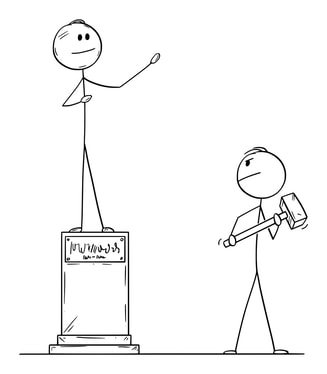 By Lori Lines Growing up, our parents or primary guardians seemed larger than life. They could tackle any task, answer any question, and do no wrong. In a child’s eyes, the adults that nurse them when they are sick, help them navigate the world, and shower them with love, are perfect. As we grow out of the ages of innocence, we may start to perceive of the humanity of our guardians. Imperfect, questioning, wounded, and in need of healing. It is difficult for some when they realize that their parents are human and fall short of their ideal of what a parent should be. It is often not until we are older or parents ourselves that we can fully embrace the fallibility of our parents with grace and compassion. Though for some, this understanding is hard to find, and no matter how pure and well-meaning their parents’ intentions are, their children feel resentment, heartache, or spitefulness towards the people they once so idolized. This manner of viewing elders and caregivers from childhood is often encouraged. Viewed as respectful and considered a sound way to model qualities that children should aspire to, putting our parents on a pedestal is a dynamic that we are conditioned to accept. As we grow, we may adopt the same way of viewing all adults, superiors, and advisors. In school, we may idolize our teachers and coaches. We emulate and aspire to be like our more successful counterparts, managers, and bosses in the professional world. When we seek guidance and healing from counselors, therapists, and lightworkers, we also raise them up on a pedestal of reverence and admiration. In fact, the more spiritual an individual’s purpose or vocation, the more we tend to revert to the conditioned response of idolization. Just as we did with our parents in our youth, we encumber our spiritual teachers, healers, and mentors with high expectations based on our own idealized versions of who we think they should be. This idealized version is often a projection of who we think we should be or who we believe these lightworkers are supposed to help us become. Some believe there are benefits to viewing lightworkers and spiritual healers in this way. Often, by painting the mentor with the brush of projection, it enables us to better visualize who we wish to become. The idealized guide can serve as an inspiration, motivating transformation, because “if they can do it, so can I.” Yet, like our parents, lightworkers are fallibly human. They are their own works in progress, seeking healing from wounds and trauma and illumination along their path of enlightenment. Unfortunately, this humanity is often overlooked. Then again, who can see it when they are so high aloft the pedestals they have been placed on. Sadly, when they fall short of our projections of perfection, they are villainized. This villainization is rooted in the same resentment, heartache, and disappointment of our youth when confronted by our parents’ imperfection. Instead of being a reflection of our hopes and dreams, the lightworker becomes a projection of our unhealed wounds. As unfortunate as the whole dynamic sounds, it can serve as an opportunity for healing. When these wounds rise to the surface to be slung resentfully at our parents, healers, guides, mentors, and leaders, we can instead use them to reawaken to our divine purpose of release, renewal, and enlightenment. When these people “let us down,” it is often because they “fail” to possess qualities that we wanted to see in others or manifest within ourselves. It is essential to ask ourselves how we can be the embodiment of who we long for others to be, how can our journey of self-actualization help us grow into the people we have always needed. We are on the precipice of transformational times and ascending the matrix. It is more critical than ever that we must be who we need for ourselves. While it can be encouraging to grow with others and motivating to be inspired by others, we must learn to follow our own path, trust our own intuition, and manifest our own growth. It is time to embrace your own sovereignty! Shake free from the doubt and the fear of not having all the answers. The time is now to turn the same faithful trust you held in your parents, or the lightworkers you’ve encountered, inward. Trust yourself and the journey even if you don’t have all the answers because no one does. After all, the whole reason for your journey is to discover them! In love and truth, Lori Lines For a list of services, fees, and to schedule an appointment, click on the button below:  By Lori Lines Four principle bodies define our personhood. The wholeness of your existence can be parsed into our physical body, mental body, emotional body, and spiritual body. The classifications are self-explanatory. The physical body governs sensory experiences, bodily needs, and desires. The mental body encompasses the cognitive processes and frameworks through which you experience your existence, such as value systems, world views, and beliefs. Comprising your emotional experiences and states is the emotional body. Finally, your higher self, inner divinity, and authentic ascended essence is the spiritual body. When we are balanced and aligned, our spiritual, mental, and emotional essence inform and are informed by each other. Our physical body is the embodiment and expression of mind, heart, and soul - an elaborate orchestration of chi. While the physical body is essential as our means of self-expression and transportation during this lifetime, of the four, it is the lowest common denominator. Imbalances can lead to systemic disruption. For some, physical needs and self-serving desires take precedence. In this case, when the mind, heart, or spirit needs healing, the drives of the temporal body block progression and growth. An illustration of this is when two people feel a strong corporeal attraction that feels so novel and strong it can be falsely attributed with karma. Granted, there are many pre-destined connections with labels such as "soul mates," "twin flames," and "karmic connections" scripted in the book of life. However, we can only discern them when spirit informs the body. When body informs spirit, we can be misled to hang on to destructive circumstances, energies, and behaviors, obstructing the intended flow of energy throughout the four bodies. This limits our mental, emotional, and spiritual growth and expansion, keeping us stuck, unable to move into the direction of our highest good. This is when it's necessary to take a moment, at this point, to reconnect to our soul purpose. We have come to this lifetime to self-actualize, achieve enlightenment, and ascend. Every experience and every relationship that has been placed on our path is meant to facilitate this practice. It may not always be clear how to navigate the situation or why a particular person or circumstance was placed on our path, yet we are still accountable for trusting the process and learning. If you are resistant or allow yourself to be distracted by physical desires, you can manifest negative karmic ramifications by blocking your soul's progression. The highly marketed and pervasive notion about the Twin Flame connection, for example, is so profound and meaningful that we must pursue it at all costs, never faltering along the journey, is an example of blocking our spiritual progression. This notion can contribute to the tendency to use fate as an excuse to resist spiritual advancement, fail to fight physical desires, and refuse to release destructive energies, people and situations that may be hurting us. While unique in many ways, the Twin Flame connection is like every other relationship in that it is meant to serve our path towards individual alignment with the higher self. When a relationship, Twin Flame, soulmate, or otherwise, fails or ceases to support our journey, we are responsible for either healing or releasing it. Divine wisdom dictates that even in our "failures" or "missteps," we can still find growth and empowerment. Revisiting the example of the Twin Flame connection, when things don't work out, instead of seeking "healing" through dogged fidelity and destructive tenacity WITH that person, we are meant to learn independence, release, and self-preservation leading to freedom and liberation. We are not intended to live co-dependently. We are designed to honor our own personhood so that we are filled with light and radiate this light out to others within our sphere. Even when we are not in relationships, independence and liberty to pursue enlightenment on our own terms are vital. While our spiritual partners can support and inspire our progression towards completion, they are not meant to complete us. As discussed in a recent article, it is crucial to show up whole to all relationships, sans our baggage, to avoid lowering our individual and mutual vibration. There are many ways people can be unavailable; emotionally, spiritually, mentally, or due to previous or current attachments. Fundamentally, whenever we stubbornly pursue a relationship that serves neither our own nor our partner's soul growth any longer than is necessary, one or more of the four bodies will be misaligned or unavailable. For a connection to fulfill your needs, both parties must be present in all four bodies. This is the only way to elevate the associated vibrations and support the delicate balance of chi that breathes life into your holistic self that sustains the four bodies it is founded upon. Keep in mind, letting go of someone we love who is emotionally unavailable may erroneously feel like a lack of fidelity or commitment, yet it is a revealing sign of dedication and loyalty to your life purpose and soul mission. Always stay true to yourself without exploiting another. In love and truth, Lori Lines To schedule an appointment click here: 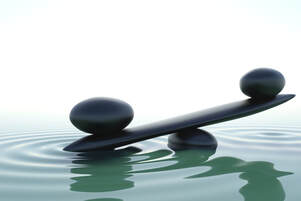 By Lori Lines Everything is energy, the emotions this article elicits, the thoughts it invokes. Your energy is an amalgamation of all the subtle energies you are made up of. Have you ever noticed that your annoying neighbor or irritating co-worker always seems to find you when you are having a bad day? That is because universal order is based in part on like attracting like. We naturally attract the energies we manifest. Polarity is another universal law. The balance of oppositional forces is represented by light and dark, yin and yang, feminine and masculine, positive and negative. Within each of us exists light and shadow. Enlightenment is realized not in the absence of our shadows but when our light illuminates all that exists within them. Spiritual growth is not a linear, quantifiable path. Viewing energy as a spectrum, some people's energy is more burdened by their darkness (lower vibrational frequency). In contrast, other people's energy is elevated by their light (higher vibrational frequency). Every interpersonal dynamic, platonic or romantic, has its own energy. It is the sum of both parties' energy. When two people who radiate more light are paired up, we admire their connection – "two peas in a pod," "meant to be," "soulmates." When two people who generate more darkness come together, we often dissent – "misery loves company," "match made in hell." Then there are relationships when opposite energies attract and a positive vibration is entwined with a negative one – "toxic," "enabling," "codependent." Think back to when you or someone you know was in such a relationship. Do you recall watching the "positive" person becoming increasingly focused on the "negative" person's wellbeing? Did their energy fade? Did their spark diminish? That's because the person filled with light was being pulled down into the other person's darkness. It's important to remember neither party is inherently good or bad based on this dynamic. We often glorify people who are self-sacrificing as heroic, compassionate, and kind. In turn, we paint people with lower vibrations as malevolent, "energy vampires," and "toxic." It is the dynamic that is toxic. What many don't realize is this type of dynamic is damaging to both people. It's as dysfunctional to pour all your light into someone else's darkness as it is to allow another's light to chase your shadows. It deters from your higher purpose by either distracting from your growth or undermining the need for growth altogether. While it may be easier to spot imbalances in others' relationships, there are some hallmarks you can look for in your own relationships. Does the relationship leave you feeling increasingly run down? Has your own growth become stagnant? Do you find yourself reverting to unhealthy, unserving mindsets or behaviors? Do you maintain this relationship out of love and affinity or concern over how the other party will fare without you? It's never too late to become aware of these unserving dynamics and regain balance! We often feel a commitment to people based on how long they've been in our lives. "I've known her since grade school," "we have been together for 10 years". The calendar is not always a good measure for a good, balanced relationship. It's about how people show up within the relationship dynamic, whether you've known them 50 years or three months, doesn't really matter. Ask yourself, if a food you have eaten since you were a child was making you sick, would you keep eating it because you had been doing so your whole life? What if you found a new food? Whenever you ate it, you felt satiated, refreshed, and nourished. Would you disregard it because you only knew of it for a brief time? That's because what matters most is how good it made you feel. Relationships are the same. The length of the relationship is not important. What is essential is how well it nourishes both parties' spiritual bodies, serving the greater good. If you find yourself in a chronically imbalanced dynamic, it's imperative to set boundaries. Focus on boundaries that make yourself a priority again, that stymie the energy vortex you have unknowingly been sucked into, and clearly delineate where your energy ends, and theirs begins. If someone refuses to honor these energetic boundaries, you may consider cutting them loose so they can no longer serve as an anchor that prevents you from taking flight on the wings of change. It isn't a complicated relational perspective. When you break it down, the principles are founded in simple math; a negative will always diminish a positive, and the sum of two positives is always greater than the parts! In love and truth, Lori Lines  By Lori Lines "Why does this always happen to me?" "How do I always attract the wrong people?" "Why me?!" Most of us have either heard or have even said something like this at some point in our romantic lives. Our tendency is to blame bad luck or the "losers" we meet when things go south in our relationships. Just because we do it doesn't make it right! To find the love, devotion, and unity we seek in healthy relationships, we must challenge ourselves to consider our role and the underpinnings of our belief systems, that drive us, in what went wrong. In other words, we need to examine what we did, or the energy we brought to the relationship to begin with, to cause the undesirable effects. Asking yourself what role you played in the distrust, betrayal, frustration, disconnection, or ultimate breakdown of your relationship is a hard question to ask when it is framed in a way that is self-deprecating and guilt-ridden. It doesn't have to be this way. By asking yourself why you have chosen a sequence of cheaters, ignored red flags, didn't speak up when a boundary was crossed, or keep being drawn to the "work-in-progress" type, you will gain self-knowledge and empowerment, breaking these toxic cycles. It can be a hard pill to swallow, yet we manifest an undesirable reality when we lack self-awareness. By allowing unserving belief systems and world views framed by trauma and heartache to go unchecked, unhealed, and unchanged, we end up with the same adverse results. Yet, when we understand the causal role we play, we are empowered to choose a different path, assume a different perspective, and choose different actions. By engaging in shadow work, release work, and accepting appropriate accountability, we can release the past, achieve a higher perspective, overcoming our self-imposed limitations and the confines of our comfort zones. The issue with comfort zones is they are made to fit where we were, not where we are going. Remaining within our comfort zones leaves us doing the same things, with the same people or archetypes, in the same ways, limiting our spiritual growth and personal development. When we enmesh ourselves in situations or connections with a lower vibration than our own, they inevitably pull down our vibration. This drains our energy and creates stagnation. When we find connections and circumstances that match our vibration, we are uplifted, the shared energy is amplified. It's important to trust that we will find the right connections and not begin desperately seeking them. Desperation is a bullet train to disempowerment. When we convince ourselves we need a partner as a source of love, well-being or affirmation outside of who we are, we give away our power. We ignore red flags, settle for less, and sacrifice pieces of our personhood because we are so distressed over the thought of being alone. We must remember, we can be whole and happy alone. In fact, we must find inner completion and contentment before we can be part of a healthy relationship. When we cling to another for personal fulfillment, the result is neither will be fulfilled. No one other than you can validate, affirm, or complete your existence, meaning you will be unfulfilled, and so will your partner when faced with a task where success is unattainable. Accountability is crucial in this instance as well. We must assume responsibility for our personal development, happiness, and sense of completion. This is foundational to self-actualization, empowerment, and well-being, yet there are also secondary benefits. When you are at one and at peace with yourself, you will be more attractive, particularly to like-minded individuals. No more low-vibrational energy drainers! Relationships where two complete individuals who love themselves and accept accountability for their lives unsurprisingly foster more growth, happiness, devotion, and fulfillment. Because these two people are not trying to make gains from a deficit, they are building up from a solid foundation on which to grow. Too many people look at love as something to acquire, retain, and exchange, like a possession. Love is actually a state of being and a way of relating to each other and the world. As they say, love is a verb. Without action, it is merely a word. It is a series of behaviors, communicating, nurturing, supporting, connecting, trusting… Of all the things we must do to love, trusting is vital. We've all been hurt. No matter the depth, the manner, or how long it's been since it occurred, these hurts can linger. Our hearts are like bruised or broken limbs. Even after the bruises have healed, we are sometimes still defensive and protective of them. We project judgment on to those who want to be in our lives, finding fault and making them wrong in order to protect ourselves. Memories of the pain linger and as they do so, we project our own wounds onto people, until we look within and completely heal ourselves and take accountability for our own sabotage. Yet to be in love, we must move beyond the fear of being hurt and be willing to stretch out of our comfort zones. While we may not be able to forget, we must be willing to trust. As we embrace our vulnerability, the ego that rejects accountability, refuses change, and finds refuge in casting blame, is silenced. Vulnerability softens your heart, allowing love to flow inward and outward, a life-giving wellspring. Of course, there are risks in opening your heart to the potentiality of hurt and pain, but the reward of learning to first trust yourself is well worth the inner work! In love and truth, Lori Lines PS. Through hypnosis, we can explore and help with relationship issues including but not limited to: Bringing love into your life Inner Child Fear of Abandonment Co-dependency to Independence Divorce Emotional Security Forgiving Infidelity Ending A Relationship Forgetting or letting go of an Ex-Love Possessiveness Jealousy Rebuilding Trust Unrequited Love Stop Controlling Stop Cheating Insecurity To book a phone, Zoom or in-person appointment click here: By Lori Lines
Projection is the subconscious act of transferring your own unwanted traits, emotions, and behaviors on to someone else. Projective identification, sometimes referred to as projection as well, is the subconscious act of taking feelings from one interpersonal, connection, situation, or relationship and place it on to an unrelated one. Finally, externalization is when we blame others for our circumstances and problems, falsely assuming a victim mentality. It can all seem a little confusing to someone who isn't familiar with these terms, so here are a few examples. An example of projection is feeling bad about not giving your all at work. Subconsciously you feel guilty that you've been disinterested and unfocused at work. Instead of assuming responsibility for not giving your all, you lash out at a blameless co-worker for being lazy and inconsiderate for not doing their fair share. You took your negative feelings and placed them on your co-worker. An example of projective identification is having left a relationship where you were undervalued and felt unheard, and you go to a skilled therapist and counselor. You get frustrated with the therapist because they never hear you and often treat you with a lack of respect, unconsciously painting them with the same brush as your ex. An example of externalization would be poor money management and thoughtless spending having you in a financial crunch. Instead of assuming responsibility for your carelessness, you blame your innocent partner for always suggesting expensive activities. Now that you know what these terms are, you may ask why we do them. They are coping mechanisms to help us deal with uncomfortable and unwelcome emotional and mental experiences. The above are examples of maladaptive coping. There are different reasons why we engage in these particular maladaptive coping techniques. They can be a means to avoid shame and damage to the ego-self. Some people are trying to prevent fearful or unpredictable outcomes. For others, it is merely a consequence of trying to block these unwanted thoughts, feelings, or behaviors out of their mind. By deciding not to think about them, our quirky brains focus on them even more. We have all engaged in this type of coping at some point in our lives, they are unconscious mechanisms after all, but a chronic or contentious tendency towards projection and blame can be very damaging to others, our relationships, and our spiritual path. As I'm sure you can imagine, when someone is projected upon or blamed when they are not guilty of the perceived offense, it can damage their self-esteem and self-worth, if they choose to take it on. Over time, when someone is met with a constant barrage of projection, it can build a toxic shame within them. This toxicity can spill over into all areas of life. This is why it is essential to consider and shape our interactions, our reactions with empathy and compassion. The truth is, the avoidance of negative thoughts, feelings, and behaviors thwart our own healing and spiritual growth. We cannot walk in the light if we don't first acknowledge and accept the dark or shadow components of our past and who we are. If we project that which is undesirable in us onto others, we never get the chance to open it to the light and to correct ourselves. By projecting and blaming, we damage our sense of empowerment, our strength, and our self-worth. We assume the role of victim and, by doing so, we cease striving to surmount our challenges and our traumas so that we can move forward in our lives in a healthy way. Finally, the path to enlightenment is one of love, love of the self and love of others. When we project and blame, it is a victimization and a rejection of who we really are, there is no room for self-love in this chronic pattern of denying our truth. Also, as mentioned, by casting unwarranted guilt on others, we can do damage to their spirit, which wrongfully impacts their path and their ability to fulfill their purpose, love cannot be sustained in this circumstance, either. Psychological projection, projective identity, and blame all stem from judgments. Judgements of ourselves that are manifested as judgments projected onto others. The first step in breaking the toxic pattern of maladaptive projective coping is to release judgment. The ego-self is sustained by judgments, when you can observe your thoughts, your feelings, and your behaviors with awareness, and without judgment, you are on the path to negative ego-death and enlightenment. It is exciting to see a trend in my QHHT practice that many of my clients are beginning to recognize, and to take responsibility for, their own role when they are projecting their own wounds into situations and relationships. As the article states, we all do this from time-to-time, but when it becomes a habit of deflecting the underlying issues, projection can take a very dysfunctional turn. This trend is showing me that the collective is allowing these underlying wounds to float up to the surface so that we can finally have the opportunity to deal with these shadow parts of ourselves in order to finally make the changes needed and put them to rest. In love and truth, Lori Lines  By Lori Lines Sometimes we meet someone, and there is an instant and intense magnetism. Occasionally, this magnetism is more than just attraction and immediate rapport. This may have happened to you already, or you could be in the throws of attraction right now. These connections can become relationships that begin with sheer bliss, love bombing, and a wonderful sense of innocence but then they sometimes end in shattering heartbreak. If you have experienced heartache such as this, you may be surprised to know it turned out exactly how you planned it! This instantaneous, powerful pull we feel toward someone may mean we are experiencing a karmic connection. This is also known as a soul contract or agreement. It is a commitment we made on the Other Side to teach/help one another achieve a certain level of enlightenment and spiritual awakening. Whether or not each person chooses to go within and take the lesson for what it is is up to each relationship participant. There are specific telltale signs that help identify a karmic connection. The first was already discussed as an intense, undeniable draw toward a person at first sight. This immense allure is followed by a honeymoon period of happiness, delight and attachment. Afterward, the intensity of emotion and connection to that person will remain, but, more often than not, the passion's fire may become too hot to handle. These relationships are recognized by how challenging, frustrating, and rocky they can be. The highs are high, and the lows are the pits! If we are observant and aware, throughout these highs and lows, we will notice the same issues will keep presenting themselves, perhaps under a different cover or in a different relationship, but the insult usually adds to the same injury again and again. Whether we need to learn self-love, self-worth, humility, empowerment, or to release what no longer serves us, we will keep being pulled through the relationship tests and patterns until we have learned the original lesson we are meant to learn about ourselves. Another telltale sign of a karmic connection are all the mixed emotions and angst we feel while in relationship to another. "I love them; I can't stand them," "I'm done; I can't walk away." Karmic connections are full of interpersonal and intra-personal conflict as well as compatibility. That is because our spirit doesn't feel right walking away (the pull) before the lesson is learned, but it is quite painful to have to keep reliving the same hurts, which can be quite confusing especially if there is a level of compatibility. Until the karmic contract is fulfilled, and the lessons are learned, we will always feel like we have unfinished business that will weigh on us until our spirit deems it's finished. According to the Vedic philosophies, there are seven relationship types. Each relationship type corresponds to one of the seven primary chakras. Relationships relating to the lower chakras, the root, the sacral, and the solar plexus are full of challenges and result in more unhappiness than the higher chakras. As such, karmic connections often arise when one needs to heal the lower chakras. The root chakra represents our sense of security, stability, and provision. Root chakra relationships are wrought with issues of the unhealthy ego, jealousy, insecurity, and survival. The emotional instability within one or both partners leads to intense highs and lows in the relationship bringing up selfishness, and emotional barriers. Karmic connections that are intended to heal the root chakra are meant to teach us inner balance, the ability to provide for the self, and the need to develop a secure sense of belonging within...regardless if the relationship is meant to be healed or not. The sacral chakra is our pleasure center. It is the home to our creativity, our passion, our emotions, and our desire for creature comforts. Karmic sacral chakra relationships are laden with issues surrounding selfishness, greed, self-preservation and worry. The self-serving nature of one or both partners leads to alienation, self-centeredness, obsessiveness, compulsion and a lack of passion and balance. These karmic connections that are designed to heal the sacral chakra are meant to foster emotional maturity, empathy, patience, and an appreciation for life's pleasures. The solar plexus chakra is what feeds our self-worth and our self-confidence. Solar plexus connections are generally the happiest of the lower chakra relationships, though these connections are not without trials. These karmic connections are affected by issues surrounding shallowness, false appearances, lack of authenticity and the desire for admiration. The lack of humility and a compulsive need to keep up appearances (even when the relationship has outlasted itself) can lead to a tendency toward "one-upmanship" and an absence of partnership equality. Ultimately, resentment and anger can develop if there is a perception of being held back or outshined. Karmic connections designed to heal the solar plexus chakra are meant to foster a stable sense of self-worth, personal integrity, motivation for higher purposes, and responsibility for one's own fate. A cosmic spiritual love and a deeply spiritual purpose of enlightenment is what brings karmic partners together. In my own past life regressions, I was able to experience and witness a life-between-life where a very intense karmic connection and I were planning this current life to be intensely drawn together for the shared purpose to incite triggers and provide opportunity to heal ourselves, within, after the relationship was sabotaged. The challenges that presented themselves in the relationship caused me to learn very painful lessons that I chose to acknowledge and to transcend. Though the physical loss of the eternal spiritual partner can be devastating in this lifetime, it does not mean karmic relationships should last. In the end, the polarities of energies will reveal themselves, and just as the two were magnetized to one another, they can also be repelled. It is rare, in one lifetime, for these partners to return and fully integrate into a physical spiritual partnership, unless both find themselves on the same page of enlightenment, learned through their individual experiences, at a later time. I often go back to the memory my regression provided, with my spiritual attachment, at our time of planning. I remember his presence and our cosmic conversation while we were in the ethereal realm, and I feel such a satisfying love that his soul provided me to feel within myself. There is no greater sacrifice of the self and for the other, to incite such transformative pain. And, after the pain is transcended, when the uncovering of that spiritual truth of love is felt once again, there's nothing greater or more satisfying when you know you've passed the test. The test leading to experience oneself as fully whole and balanced without the same triggers that the partner once incited. There is no greater love, between souls, such as this. The danger of the karmic connection is to cling to the familiarity, the intensity, and at times, the codependency. As heartbreaking as it can be, know when it is time to walk away. It's important to do so in peace, knowing you and your karmic connection share such a profound sacred love that you decided it was a journey worth traveling and a loss worth enduring for the sake of mutual enlightenment. In love and truth, Lori Lines  By Lori Lines Entering the realm of higher consciousness is spoken about with positive intentions, however, the spiritual journey of expanding consciousness can be gritty and painful as we are bombarded with truth about the way we have been living under a type of spell or dream in an unconscious way. Of course, we are not aware we've been living in a dream world until we experience a series of catalysts that wake us up. Some of us wake up like a bandaid ripped off, exposing our wounds, while we are left to deal with the aftermath of pain, disappointments, guilt, remorse, fear, and even depression. It is where the dark night of the soul can enter, encountered with our darker side, where exposure of traumas and fears are commonly felt. Some of us wake up over a period of time and its subtleties are barely perceptible when one day, we are compelled to look back at our life progress and see, really see, how we have evolved from where we began to where we are now in our souls evolution. Suffice it to say that waking up is a journey to a new reality that's based in truth we've never perceived before. And, when that time comes, those who are near and dear to us may or may not be on that same path as this new reality we suddenly find ourselves living. To be supported and encouraged by those we love and trust would be a wonderful aid in the process of waking up, yet you may find yourself feeling alone and isolated. At this crucial time in one's spiritual evolution, one may feel judged and mocked by those once thought would champion you. In fact, this is very common. Yet, this sense of isolation can be a side-effect and a further catalyst for awakening. However, all is not lost. Interpersonal relationships can still be navigated during awakening, once we come to understand and accept certain principles. One principle is you will lose people. People come into our lives for a variety of reasons. Even close friends may decide your notions, your belief systems and your new paradigms to be too "far fetched" for them. They may even determine that you aren't the person they have come to know. Or, as you ascertain new truths that change your vibrational frequency, you may decide that they no longer resonate with you and, sadly, may have to let them go. Once you accept that everyone is responsible for their own spiritual journey, even if they do not understand you or they haven't figured out they are on one yet, you will be more at peace when others walk away, eventually. Another perspective you may want to consider is that you aren't here to change anyone's mind. When we try to do this, it becomes a waste of energy, especially when others are not ready to hear you out. Some people that seemed so reasonable before you began awakening, suddenly judge you or dig in their heels when you try to express yourself while their paradigms are challenged. There will be people who will be dismissive and disagreeable no matter what you have to say. And, you know what? That is OK! My suggestion is not to argue with people who are committed to disagreeing with you or who are committed to misunderstanding you. Because they will. Believe me. In no longer attempting to sway others to your new way of thinking is not spiritual bypassing; this is acknowledging that it is not your duty to change a closed mind. There will be people who will be open to have these discussions with you, to open to hearing what you have to say, all the while checking into their own triggers. And if there is not, then it's not time...even more reason to go within, to journal, to meditate, to explore your new reality on certain matters, and to connect to your newly-found higher consciousness. An important distinction to make is your spiritual itinerary is your own. It does not need to align with anyone else's until you have integrated your newly found self and have become more confident in who you have become. As you expand your consciousness, coming to new realizations and connecting the figurative dots like never before, you will want to share the invigorating and revitalization energy with those close to you! But, I would not recommend it unsolicited. Not everyone has the same timetable of spiritual awakening. You could present frightening ideas, that challenge another's reality and their ego. This doesn't make these people unevolved or "lesser-than," it simply isn't their time. And, it may never be their time. I always try to err on the side of being respectful of that. What's important to remember is you are not alone. Even if your friends and family don't see eye-to-eye with you, there are people and communities that you can become a part of when you are ready, there is spiritual literature you can read and mentors you can learn from. Just be prudent and discerning of the information you ingest and the people you trust, as during a spiritual awakening process one can feel disoriented, vulnerable and unclear, therefore, one might attract those whose vibration is the same, rendering them to be untrustworthy in the long-term. And, it must be said, that not every philosophy warrants credence. There are a lot of credible, loving people who may not have experienced your unique journey but have experienced the highs and lows of spiritual awakening, when they, too, felt alone. Your journey is as unique and personal as you are, yet it is communal. Know that many people have walked a path of awakening that have become self-realized and even more enlightened. Those are the people to seek out, of course, with an eye toward discernment. And rest in the knowing that the collective consciousness is awakening overall. In love and truth, Lori PS: If you are suffering in isolation during your awakening and for tips on how to navigate these challenging times, I'm here to help. To make an appointment, click below:  By Lori Lines Many clients mention the yearning for connection with like-minded people because, in this age of social media, political divisiveness, and information overload, we are disconnected more than ever. But that doesn't have to be the case, if one is open and willing to put down the smartphones, close down their laptops, and take responsibility for making a few changes. Several years ago I moved back to my hometown after being gone for several years. Though there were still a few people I knew from my old school days, I had grown in a different direction and I didn't have much in common with most of them anymore. After settling in, I decided it was time to find my soul tribe of like-minded individuals. I attended a few meet-up groups before I settled in on one. From that point on, I met a few wonderful, like-minded folks that have become a core soul-group...these people have been there through thick and thin and I feel so blessed to have them in my life. Attracting our soul group is an important part of the journey to accessing inner peace and a more productive and joy-filled life. Finding that group of individuals who truly "get" us can completely enrich our lives. What I've learned is by understanding who you are and sharing similar values and beliefs helps ensure that you will be able to speak for hours and enjoy your connections. While finding them can be challenging, here are some tips to help you attract your soul group and enjoy a more satisfying life:
By the way, if you are interested in going deeper into understanding your relationships, you might want to schedule an intuitive guidance appointment with me so we can delve into specifics. In love and truth, Lori Lines  By Lori Lines As I awaken spiritually, I've come to observe that many people have misconceptions about what equality in a relationship is. Some think equality means matching every little thing that one gives another such as the expectation that if one puts a quarter in a shared jar, the other is expected to put a quarter in that same jar, for example. When both place their quarters in the jar, the perception is both are being equal. This is an unrealistic expectation where relationships are concerned. This is not what is meant by equality. In reality, equality in a relationship means balance. A balance of energy exchange and effort that is meaningful for both parties involved. So, how do we get to a point of balance in a relationship? It begins with the self first. It's about finding your own sense of value and worthiness, within yourself, and knowing what that is and being able to communicate it to your partner. When we understand who we are we have a sense of our own worth and therefore, anything our partner (who also knows their value and who they really are) gives has meaning for the good of the relationship. It's as if you stand in your true self saying, "this is who I am and this is what I offer" and then authentically BEING what you offer. It's a place of meeting toe-to-toe and eye-to-eye. This is balance. No longer will it work to seek for love that is so unapologetically contrived in our society. True love exists in the time and space of being who we really are and the only way we are actively being who we really are is when we are standing in the presence of ourselves - because being in the present moment is being in a space of love. It is the only way true love can be expressed for when we are standing in presence, love will use us to experience itself. Deep? I know, but it's true. Now, more than ever, we are encouraged to let go of anything we believe to be true and just be present. Meaning, in allowing life to live you, life will become much easier because in each moment, we are reborn and we tune in to a very enlightened state of be-ing. Being who you really are (love) is a constant stripping away of the beliefs of what you think you are. Think about it. Wishing you many blessings as you practice presence, Lori Lines  By Lori Lines Over the last year, I have noticed something. I'm not really sure what to call it. It's not a trend, for that implies it's not been there before. Let's suffice it to say I woke up to it recently. I have a few friends, colleagues, and acquaintances. More of which I've been in contact lately because of the many spiritual and physical changes that have been manifesting in my life. With that said, when normally speaking to friends, colleagues, and acquaintances about the issues of the day, I noticed some (not all!) speaking at me instead of listening and speaking to me. I realized I would throw out a sentence or two, barely able to complete the thought, when it would trigger one to run with it, assuming all kinds of stories and attaching their own filtered meanings and judgments to what I had to say. This has, in the past, left me feeling abandoned, holding the bag, wondering, "what just happened?" I would then stop, wait for them to finish as their rhetoric continued on and on and on. As I was allowing them the floor, and searching for the opportunity to get my word in edgewise, I could feel my energy draining from my whole being as their dialogue was morphing into their own problems, their own internal chaos spewing, their own perceptions projected onto the issues (now forgotten) I brought up that exist in my own life. To an empath, the absorption of all this energy can be heavy and transmuting it can be cumbersome to say the least. In my world, there is truth in the quote by Stephen R. Covey, "Most people do not listen with the intent to understand; they listen with the intent to reply.” Which begs the question, "where have I done this to others?" Yes, I have done this! And, I can remember specific times I've done so. I have awakened, thank you very much, Universe! As I continue to practice mindfulness (the art of staying present) these types of issues come to the surface. I have noticed so much that has not been seen or felt before as truth begins to seep out from all over the place. One thing is for sure, this mindfulness thing really works as I realize there's less need to complain or to commiserate with others when things are not quite going the way I might like them to go. I have found, when I settle into my deepening connection to the still and quiet places within and listen, it knows and speaks the truth. And, the more I listen, a gentle calm cradles me. I am now less inclined to participate in the soul-stealing idle drama of chatter (that has diverted me from so much) as the practice of presence has allowed me to maintain my connection as an extension to my higher-self. I love watching meaningful moments unfold with my clients rather than trying to have a ready-made answer for them. The best anyone can do is to share their wisdom without attachment to whether the other understands or takes the lesson. When one is ready. This, my friends, is where the good stuff is. This is the energy I conserve for my clients who are serious about their own awakening times. And as I write that, I'm thinking, perhaps, things are progressing just the way they are intended. Wishing you love, blessings, and peace. Lori Lines 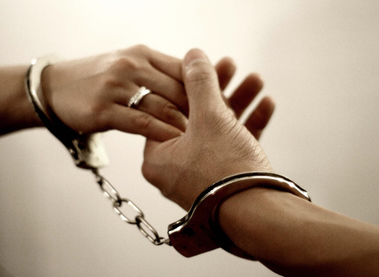 By Lori Lines We are moving into a new paradigm in love relationships. Many who are stuck in ego, at this time, may find this article offensive to their beliefs and, therefore, may anger some for it may challenge your current relationship belief as it is right now. However, this is a mindset of control and we are moving into a time where control will no longer hold us hostage. We are awakening to the fact that love is freedom and anything that restricts or withholds us is not love. Since our highest desire is always love, we are moving in that direction. Many of us have incarnated onto Earth at this time, as human beings, to learn and to experience what unconditional love really is. We see these experiences in people awakening to the presence of their true soul mates and twin flames. In our generation and generations of the past, what we thought was love was really attachments based on fears, illusions, and a lot of pain and suffering rather than the experience of love in Source energy of the spirit. Source love, the holy trinity, is an unbounded, free and infinite energy of unconditional love. I foresee the new institution of marriage to be a commitment to unconditional love (love of the self and love of all others) rather than a projection of only loving the other, possessing the other, that is legal and limiting in its beliefs. These limiting beliefs set up an energy implying a lack of trust in self and the other and, therefore, is not built on a solid foundation of love but rather a crumbling foundation born of separation, that is not love. It is a 3D fear- based love programming where there are marriage contracts based on ownership, co-dependency and contracts " 'til death do us part" and "...in sickness and in health." This mindset perpetuates itself and creates negative Karma. It becomes a self-fulfilling prophecy where separation has to take place on some level because these are contracts based on fear and not unconditional love. The only way to rise above this level of karma is to rise above it in climbing to further unconditional love. With the new relationship paradigm that many are beginning to actually live, there will be no need to keep one "in line" through adhering to the old limiting framework because there will just be love and as long as the love is there, there will be union out of every day choice. When both parties are standing in their love energy (that commitment to unconditionally love themselves and others), they are a vibrational match and it is the energy of love that can be trusted. True love is light. Continuously standing and holding that space will not allow the darkness of deceit, manipulation, or control into the union. As humanity ascends, our light bodies will not be able to withstand the weight of the darkness of deceit, manipulation, codependency, LIMITS. So, when two partners commit to unconditional love, nothing outside of that can penetrate it. It is a solid foundation, when left to breathe, in itself. It is a commitment from both parties to stay in awareness of their own individual shadow sides that, once these sides are faced, embraced, loved - then that which has obstructed love between you, dissolves when the love becomes deeper, more expanded and unconditional. It is Divinely protected and Divinely inspired because its frequency is so high that true happiness will reign. |
Author Lori LinesDisclaimer: Lori is a high-level channel. The information contained on this site is intended for educational purposes only and is not a substitute for advice, diagnosis or treatment by a licensed physician. You should seek prompt medical care for any health issues and consult your doctor before using alternative medicine or making a change to your regimen. Categories
All
|
Lori Lines, All Rights Reserved
DISCLAIMER
"The services I render are held out to the public as non-therapeutic hypnotism, defined as the use of hypnosis to inculcate positive thinking and the capacity for self-hypnosis. I do not represent my services as any form of health care or psychotherapy, and despite research to the contrary, by law I may make no health benefit claims for my services." - Lori Lines










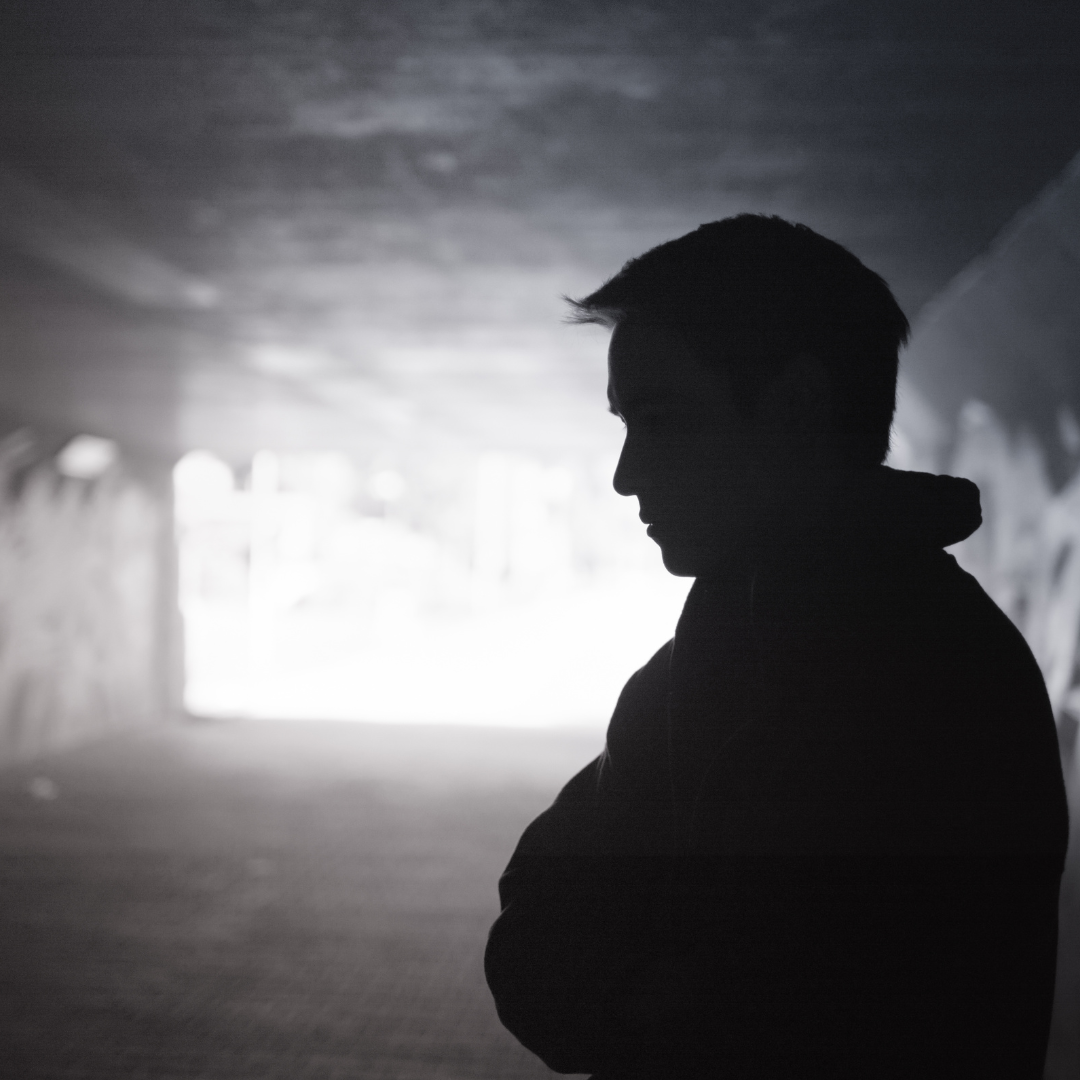

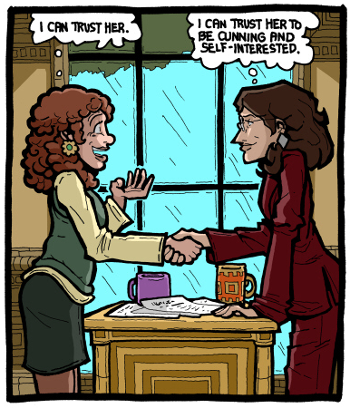
 RSS Feed
RSS Feed
